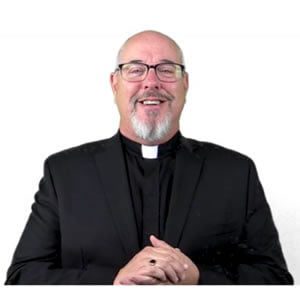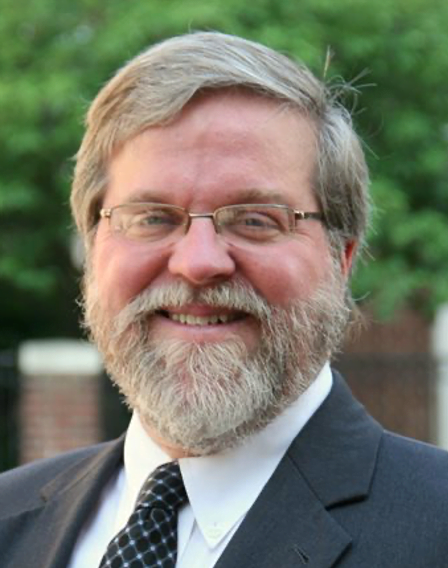
Martin Luther was not only a Roman Catholic priest, but an Augustinian friar. St. Augustine (whose rule the order follows and after whom it is named) was the father of the doctrine of Original Sin. Simply put, this doctrine holds that humans are born with the sin of Adam in them, along with a proclivity to sin. This ‘stain’ must be washed away, and the person thereby given a fresh start (regeneration). This concept is what lies behind the following passage from the Augsburg Confession (upon which Lutheranism is based):
It is also taught among us that since the fall of Adam all men who are born according to the course of nature are conceived and born in sin. That is, all men are full of evil lust and inclinations from their mothers’ wombs and are unable by nature to have true fear of God and true faith in God. Moreover, this inborn sickness and hereditary sin is truly sin and condemns to the eternal wrath of God all those who are not born again through Baptism and the Holy Spirit. Rejected in this connection are the Pelagians and others who deny that original sin is sin, for they hold that natural man is made righteous by his own powers, thus disparaging the sufferings and merit of Christ (My emphasis added. ACII).
You can begin to see, from the emphasis I added to the quotation above, how this fits into an examination of this week’s Gospel text. In Lutheran theology it is in Baptism that our original sin is washed away. Baptism (water and the Holy Spirit) is the fresh start which even new-born innocents are given. They, and we, are thereby “born from above” (John 3:3). This phrase is often translated as “born again” (from the Greek anōthen which can mean both ‘from above’ and ‘again’). However, given John the Evangelist’s use of directional language (earthly/heavenly, ascended/descended, lifted up) it seems to me that “born from above” is best. Especially when this fits so well within the Jesus-Nicodemus dialogue in which there is confusion between the spiritual and the temporal – Nicodemus thinking temporally (born again) when Jesus is speaking spiritually (born from above).
Just how this all fits with the Holy Trinity, to which feast day this text is assigned, becomes clearer once we dive into two additional Greek words, logos and pneuma. Jesus is, in John’s Gospel, clearly identified as the Word (logos), as John’s prolog famously and powerfully states:
In the beginning was the Word, and the Word was with God, and the Word was God. He was in the beginning with God. All things came into being through him, and without him not one thing came into being. What has come into being in him was life and the life was the light of all people. The light shines in the darkness, and the darkness did not overtake it (John 1:1-5).
Pneuma, can mean either ‘spirit’ or ‘wind,’ and in fact John uses that word in both of its meanings in this week’s text:
Jesus answered, “Very truly, I tell you, no one can enter the kingdom of God without being born of water and Spirit. What is born of the flesh is flesh, and what is born of the Spirit is spirit. Do not be astonished that I said to you, ‘You must be born from above.’ The wind blows where it chooses, and you hear the sound of it, but you do not know where it comes from or where it goes. So it is with everyone who is born of the Spirit” (vs. 5-8. Emphasis added).
Both words are familiar to readers of Genesis 1:
When God began to create the heavens and the earth, the earth was complete chaos, and darkness covered the face of the deep, while a wind from God swept over the face of the waters. Then God said, “Let there be light,” and there was light. And God saw that the light was good, and God separated the light from the darkness. God called the light Day, and the darkness he called Night. And there was evening and there was morning, the first day (vs. 1-5).
Here we see the Triune God (Father, Son, and Holy Spirit) active in Creation. God speaks the Word (logos), and the wind/pneuma sweeps over the waters, and it is good! And, as both logos and pneuma bring forth life in Creation, so they also bring new life “from above” in the life of the child of God, through Baptism.
Yes, this passage is remembered for many wonderful things. Nicodemus is clearly still ‘in the dark’ concerning Jesus and his ministry. The serpent was lifted up in the wilderness after the people’s revolt led to death; but as they looked up and saw the serpent they received life. But they would die a natural death eventually, as did those who eat manna/bread in the wilderness. But, when Jesus is lifted up on the cross, people receive eternal life, as do those who eat/received the Bread of Life (John 6:25f). And it may be true that this dialogue between Jesus and Nicodemus is a mirror image of the struggle between John and his community, and the synagogues from which they were being expelled. However, nothing should take away from the wonderful heart of this text: a New Creation is at hand. The Triune God is at work!


